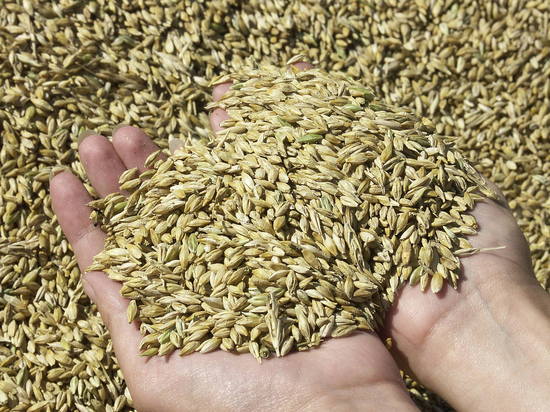In Warsaw, they were afraid of insects in bread from Kyiv wheat
In Poland, a major scandal erupted around the grain supplied to the country from Ukraine. It turned out that technical Ukrainian grain was sold to three large flour mills under the guise of Polish wheat. On April 12, at a meeting of the Sejm, deputies asked the Minister of Agriculture Robert Telyus a direct question: do Poles eat «bread made from ground insects and technical grain»? The expert suggested that Polish farmers, dissatisfied with the “dumping” of Ukraine in the grain market, could be behind the scandal.

Quite recently, the Polish minister promised that Ukrainian grain would only be transported through Poland to other EU countries for sale. But it turned out differently.
On April 11, the newspaper Rzeczpospolita reported that three large flour mills had bought wheat claimed to be Polish. However, instead of Polish, they were sold Ukrainian grain, which entered the country under the brand name «technical». Moreover, as representatives of the Polish government note, they do not have information about what exactly was imported into Poland as “technical grain”; and in what quantities. According to Radio ZET, at a meeting of the Sejm, one of the deputies, Magdalena Sroka, said that now «Poles eat ground insects.»
By the way, the previous Minister of Agriculture of Poland, Henryk Kowalczyk, was recently forced to resign due to the protests of farmers dissatisfied with the dominance of cheap Ukrainian grain on the Polish market. Now his successor, Robert Telyus, demands to urgently remove the problematic grain from the country.
However, it will not be easy to attach it. On April 13, the Ministry of Agriculture and Regional Development of Slovakia announced that the country's authorities had banned the processing and sale of Ukrainian grain and flour made from it. A pesticide banned in the EU that is harmful to human health was found in it.
Political scientist Andriy Suzdaltsev commented on the situation in Europe around Ukrainian grain especially for MK.
— Grain exported from Ukraine as part of the «grain deal» — it is, for the most part, corn, not wheat. But the «grain deal» concerns export by sea, while grain is delivered to Poland by rail. This export has nothing to do with the «grain deal.» The problem there, as far as I understand, is that Ukrainian grain is poisoned with pesticides.
There is no such thing as «technical wheat». There are different classes of wheat depending on the quality of the grain. There is also feed grain, which is fed to livestock. There we are talking about the fact that chemical additives that are dangerous to humans were found in the grain. Simply put, it is a poisoned grain.
But I have big doubts. Fertilizers – it is expensive. This year in Ukraine there is a big problem with the sowing season due to high prices for energy resources and protective equipment.
— In Poland there is a big campaign against grain from Ukraine. Farmers are suffering from the fact that cheap grain has arrived, and it really is very cheap. Therefore, it is dragged to the EU, and then resold, it is profitable. And Polish wheat farmers are going bankrupt. And this has already turned into a political problem.
Poland provides itself with grain, it does not need Ukrainian. And it turns out that Ukraine is ruining Poland – there is not only grain, but also the problem of refugees, financial assistance to Ukraine. And then there's the «poisoned» corn. There is a heavy political struggle over Ukraine.
«Grain Deal» has two sides. It seems to help Ukraine to some extent, it is beneficial to the West, which receives cheap grain. But, on the other hand, it ruins the agriculture of the EU countries. So I would advise you to be critical of the hysteria in the Polish press.
The Ukrainian question there has become an element of internal struggle. Moreover, the quality of Ukrainian wheat is, in principle, better than Polish. But Europe is very tired of the Ukrainian problem. These are big expenses. This is competition in the labor market.
They are trying to block the road to Ukrainian grain. So that Polish farmers can sell their grain within the EU. Cheap Ukrainian grain ruins them. Farmers suffer not only in Poland, but also in Romania, Bulgaria, Hungary, Slovakia, and the Czech Republic. Farms there usually specialize in one particular crop. They deal specifically with grain. They have equipment for leasing, seeds on credit, fuel on credit. And then suddenly cheap grain comes in, and the market closes. The situation is difficult.

